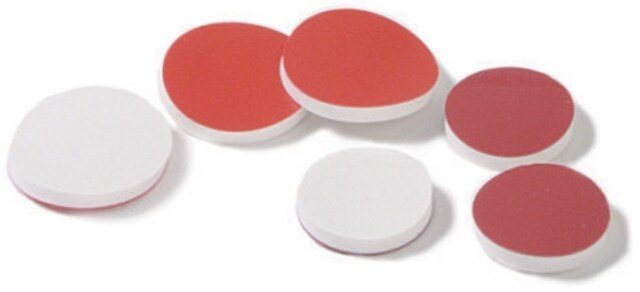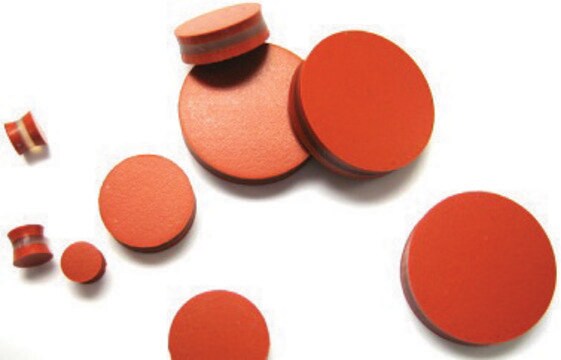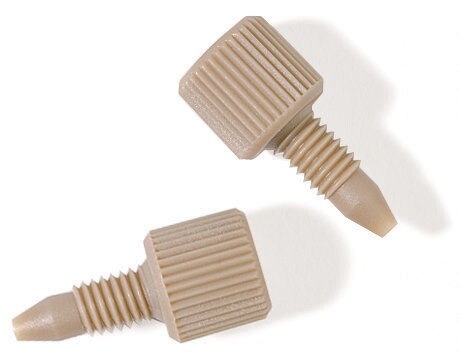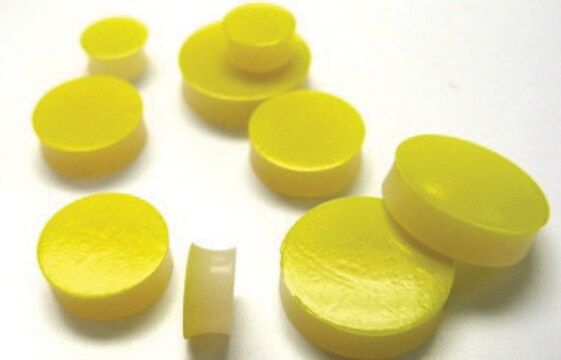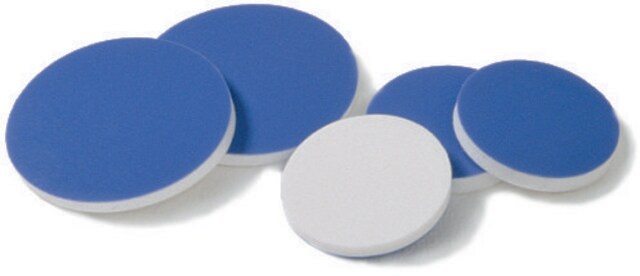27132
Septa, PTFE/red rubber, pkg 100
PTFE/red rubber, diam. × thickness 8 mm × 0.050 in., for use with screw cap, 8-425
Sign Into View Organizational & Contract Pricing
All Photos(1)
About This Item
UNSPSC Code:
41122001
Recommended Products
material
PTFE septum face
PTFE/red rubber
PTFE/red rubber
packaging
pkg of 100 ea
O.D.
8 mm
diam. × thickness
8 mm × 0.050 in.
compatibility
for use with 2 mL standard opening vial
for use with screw cap, 8-425
Looking for similar products? Visit Product Comparison Guide
General description
The red rubber is "polybutyl isoprene."
Application
PTFE-red rubber, silver-septa with caps was used to close head-space vials containing essential Ocimum oils during solid phase microextraction (SPME), in an experimental study conducted for chemotaxonomical analysis of the essential oil aroma compounds of four different Ocimum species. It may also be used with headspace vials in Headspace Sorptive Extraction (HSSE) sampling coupled with Gas Chromatography-Mass Spectrometry (GC-MS), for the analysis of the volatile fractions and chemometric methods of pesto genovese and its ingredients.
Septa, PTFE/red rubber, pkg 100 may be used for a headspace glass vial in the analysis of the volatile fractions of pesto, a typical Italian basil-based pasta sauce, and its ingredients using headspace sorptive extraction (HSSE) followed by gas chromatography-mass spectrometry (GC-MS).
Related product
Product No.
Description
Pricing
Choose from one of the most recent versions:
Certificates of Analysis (COA)
Lot/Batch Number
Sorry, we don't have COAs for this product available online at this time.
If you need assistance, please contact Customer Support.
Already Own This Product?
Find documentation for the products that you have recently purchased in the Document Library.
Analysis of the volatile fraction of ?Pesto Genovese? by headspace sorptive extraction (HSSE).
Salvadeo P, et al.
Food Chemistry, 105(3), 1228-1235 (2007)
Study of different kinds of ?Pesto Genovese? by the analysis of their volatile fraction and chemometric methods.
Food Chemistry, 114 (1), 306-309 (2009)
Chemotaxonomical analysis of the essential oil aroma compounds of four different Ocimum species from southern India.
Leopold J
European Food Research and Technology, 217 (2), 120-124 (2003)
Our team of scientists has experience in all areas of research including Life Science, Material Science, Chemical Synthesis, Chromatography, Analytical and many others.
Contact Technical Service